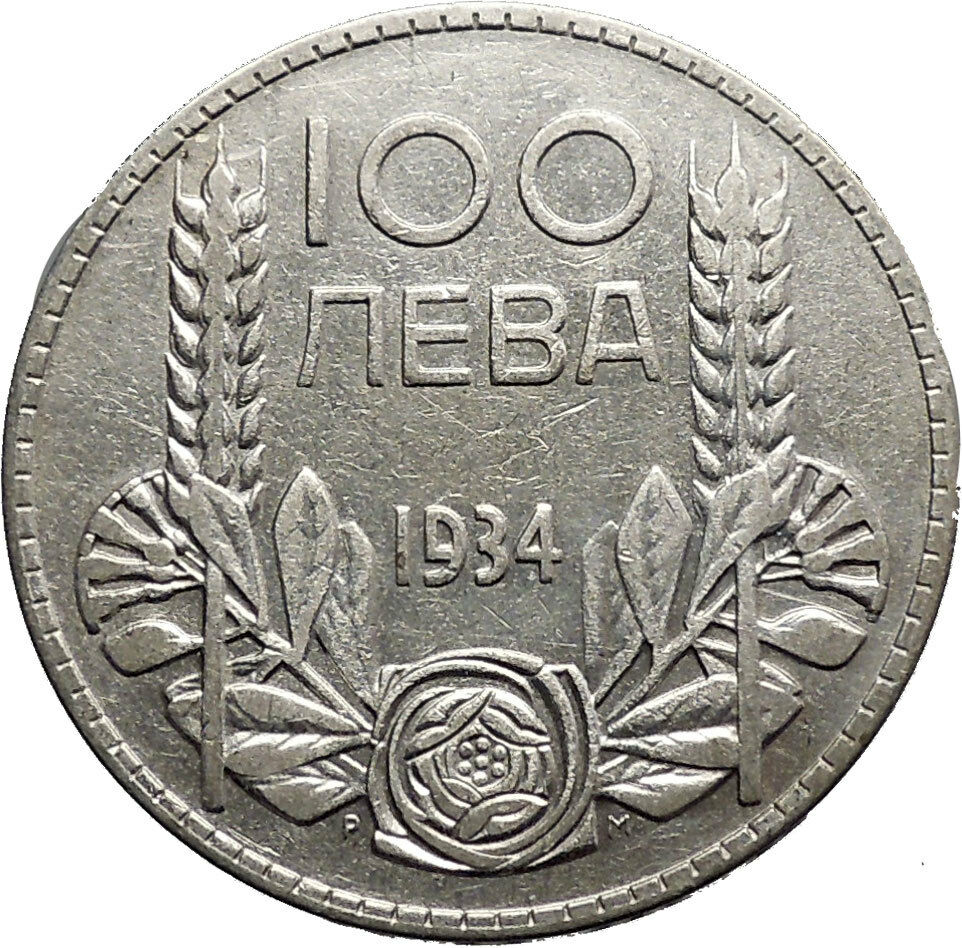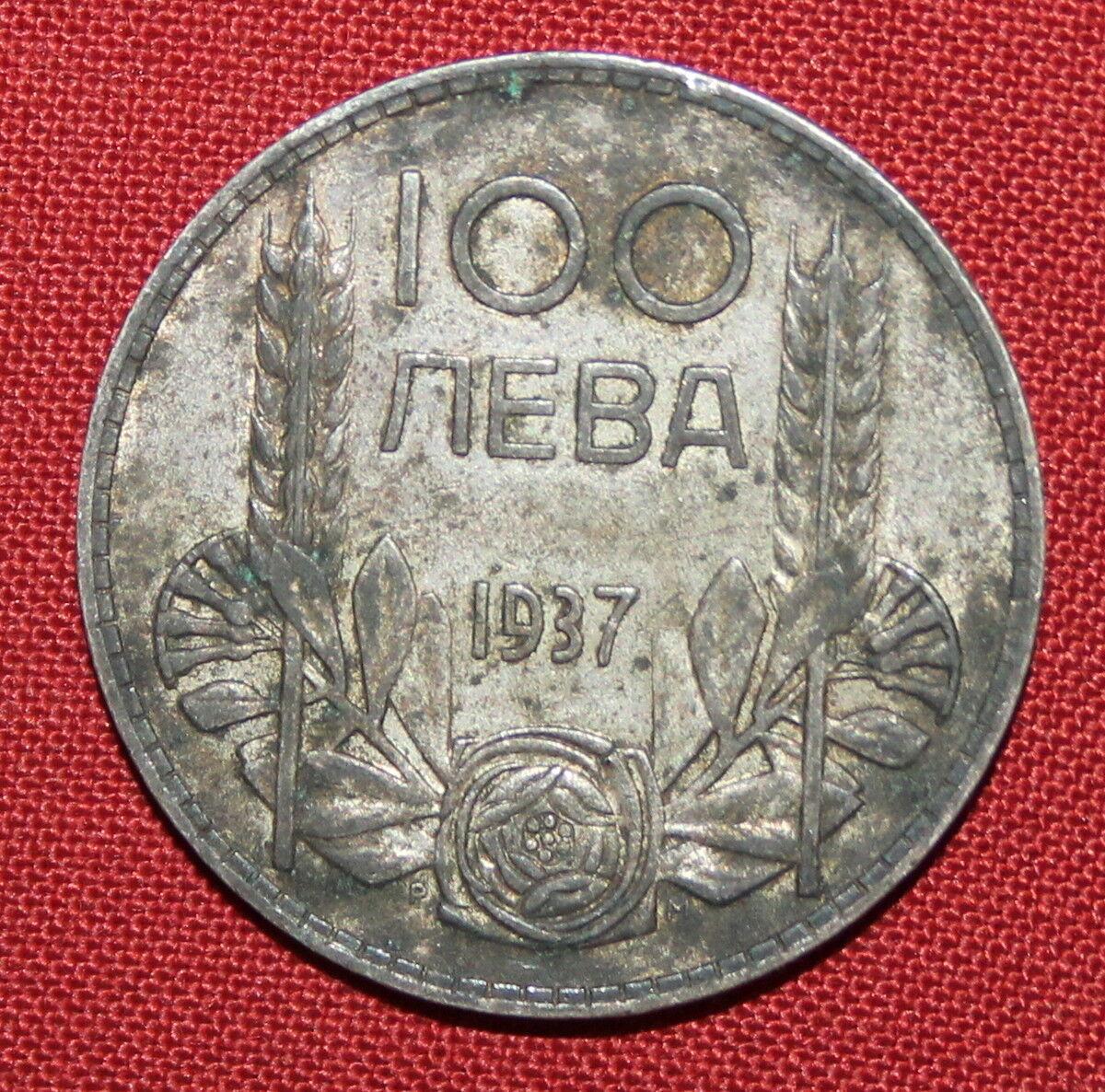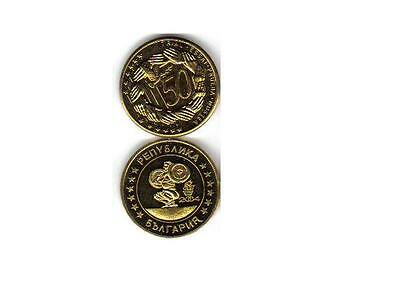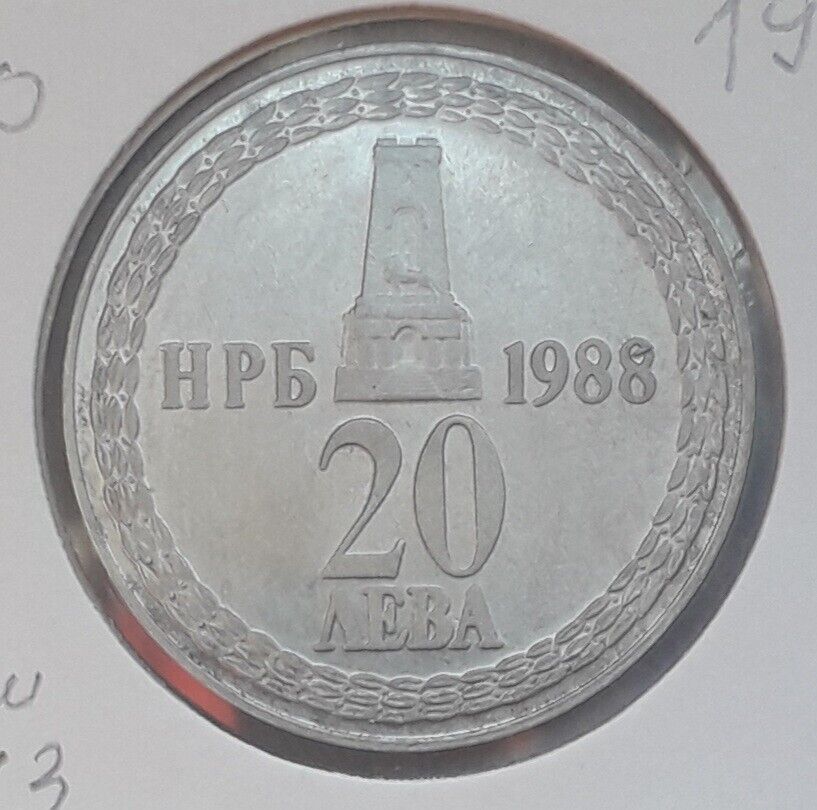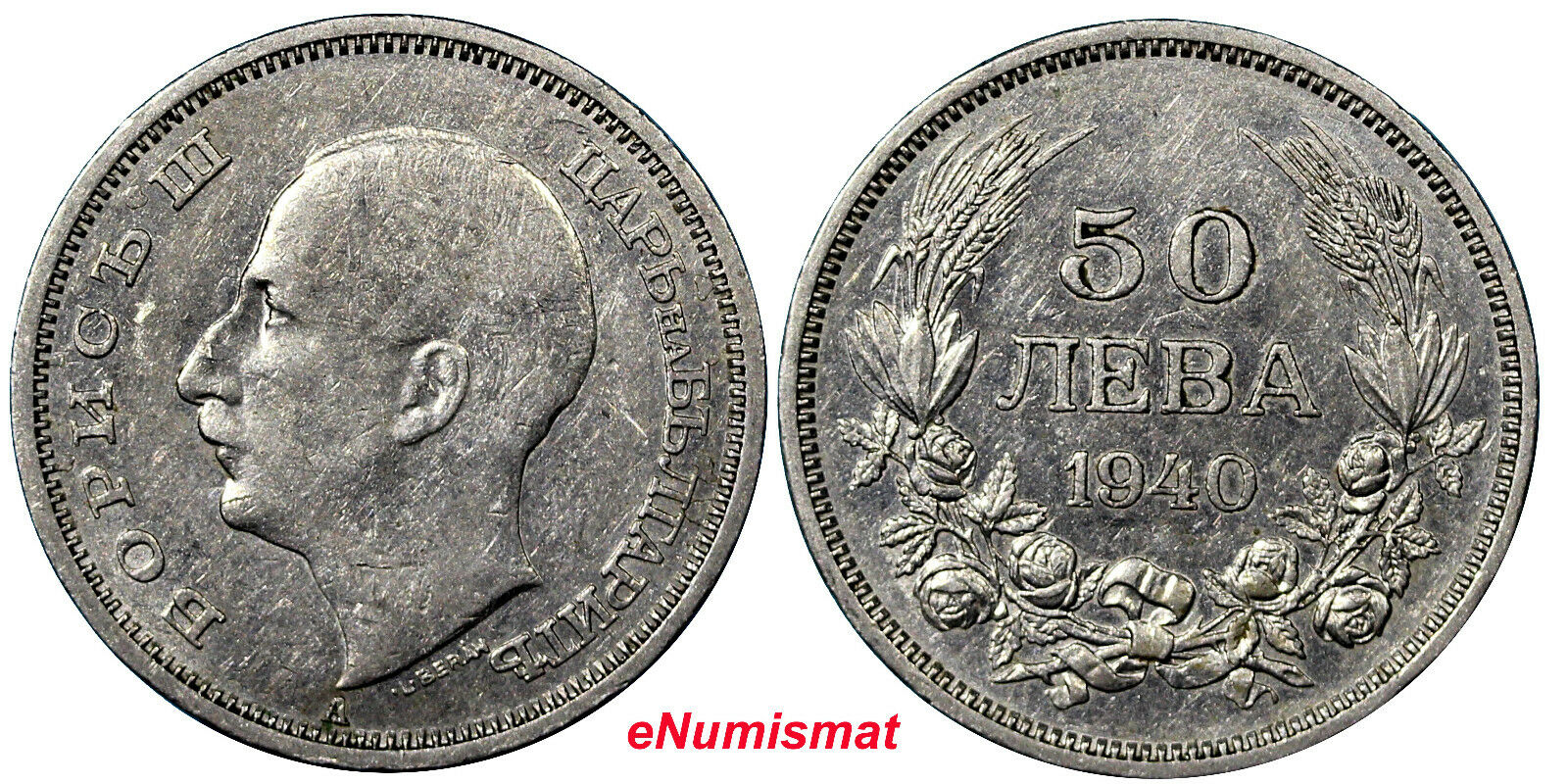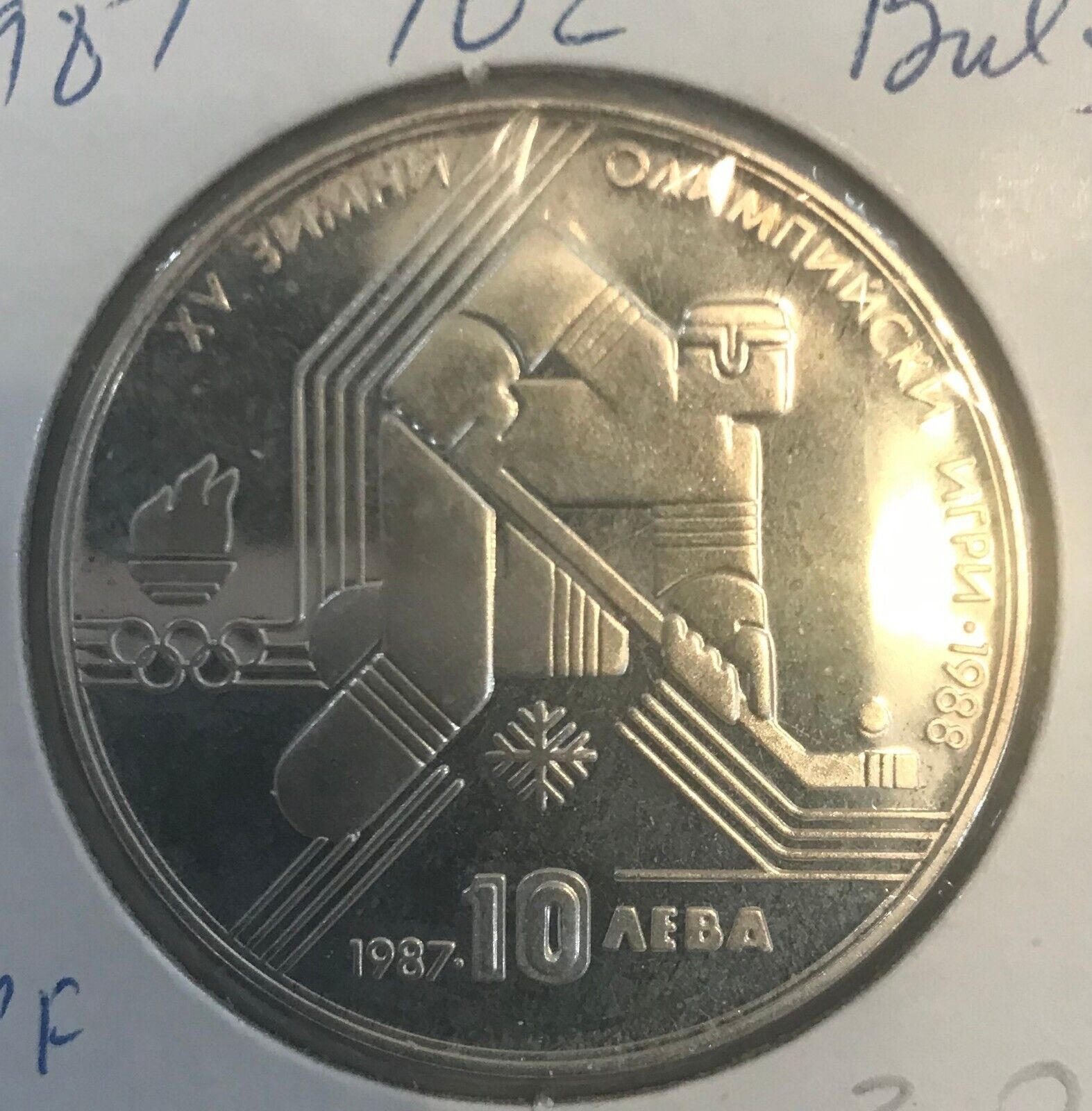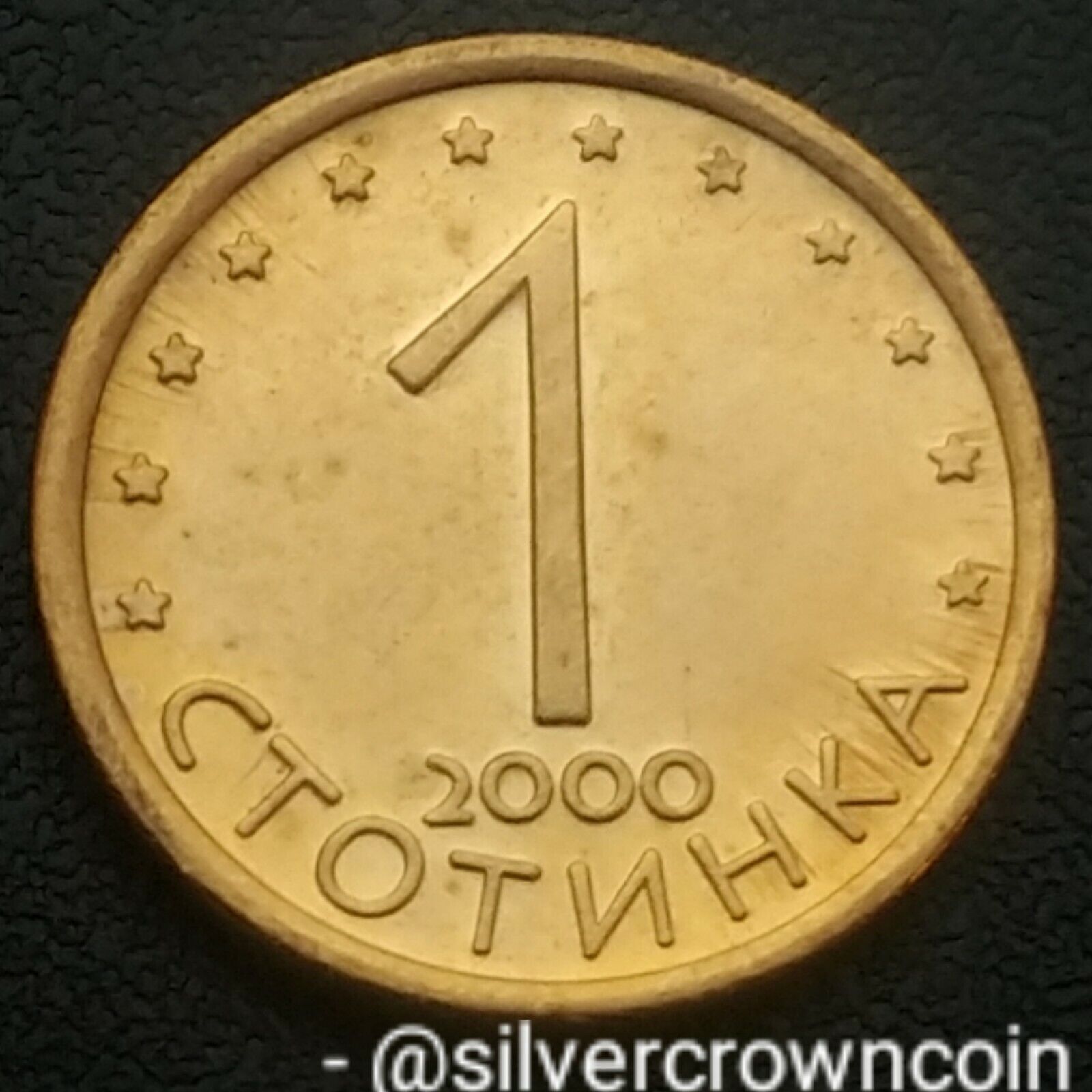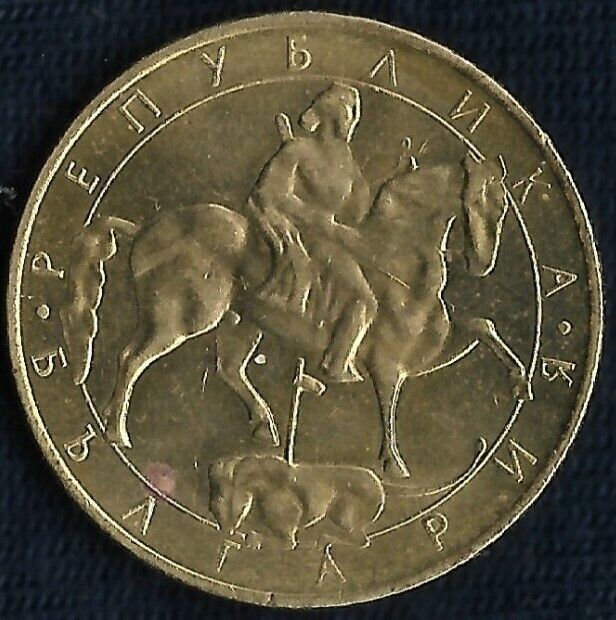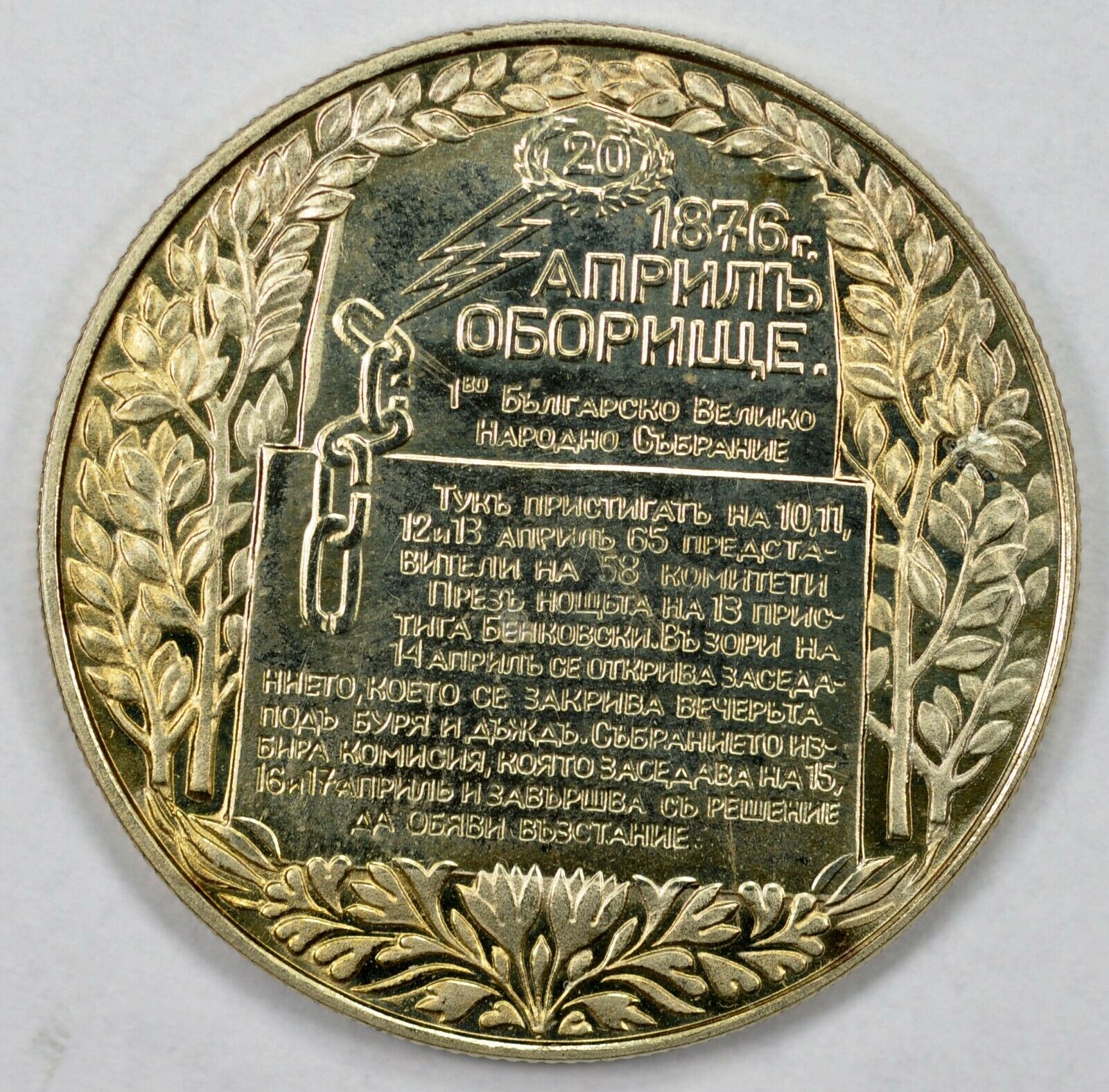-40%
1934 Boris III Tsar of Bulgaria 100 Leva Large Old European Silver Coin i50159
$ 52.8
- Description
- Size Guide
Description
Item:i50159
Authentic Coin of:
Bulgaria
Boris III - Tsar of Bulgaria: 3 October 1918 – 28 August 1943
Silver
100 Leva
34mm (19.76 grams) 0.500 silver (approximately 0.3194 oz. ASW)
Reference: KM# 45 Designer: Percy Metcalfe
БOPИCЪ III ЦАРЬ НА БЪЛГАИТѢ, his head left.
100 ЛEBA 1934 between two stalks of wheat and flower and bottom.
You are bidding on the exact item pictured, provided with a Certificate of Authenticity and Lifetime Guarantee of Authenticity.
Boris III, Tsar of Bulgaria
(30 January [
O.S.
18 January] 1894 – 28 August 1943), originally
Boris Klemens Robert Maria Pius Ludwig Stanislaus Xaver
(
Boris Clement Robert Mary Pius Louis Stanislaus Xavier
), son of
Ferdinand I
, came to the throne in 1918 upon the
abdication
of his father, following the defeat of the
Kingdom of Bulgaria
during World War I. This was the country's second major defeat in only five years, after the disastrous
Second Balkan War
(1913). Under the
Treaty of Neuilly
, Bulgaria was forced to cede new territories and pay crippling reparations to its neighbours, thereby threatening political and economic stability. Two political forces, the Agrarian Union and the Communist Party, were calling for the overthrowing of the monarchy and the change of the government. It was in these circumstances that Boris succeeded to the throne. He distinguished himself during the Second World War by opposing attempts by
Adolf Hitler
to deport the
Jewish
population of his country.
Biography
Boris was born on 30 January 1894 in
Sofia
. He was the first son of Prince
Ferdinand of Bulgaria
and his wife Princess
Marie Louise
.
In February 1896 his father paved the way for the reconciliation of Bulgaria and
Russia
with the conversion of the infant Prince Boris from
Roman Catholicism
to
Eastern Orthodox Christianity
, a move that earned Ferdinand the frustration of his wife, the animosity of his Catholic Austrian relatives (particularly that of his uncle,
Franz Joseph I of Austria
) and excommunication from the Catholic Church. In order to remedy this difficult situation Ferdinand christened all his remaining children as Catholics.
Nicholas II of Russia
stood as godfather to Boris and met the young boy during Ferdinand's official visit to
Saint Petersburg
in July 1898.
He received his initial education in the so-called Palace Secondary School which Ferdinand created in 1908 solely for his sons. Later, Boris graduated from the Military School in
Sofia
, then took part in the
Balkan Wars
. During the
First World War
he served as
liaison officer
of the General Staff of the Bulgarian Army on the
Macedonian front
. In 1916 he was promoted to
colonel
and attached again as liaison officer to Army Group Mackensen and the Bulgarian
Third Army
for the operations against
Romania
. Boris worked hard to smooth the sometimes difficult relations between
Field Marshal
Mackensen
and the commander of the 3rd army
Lieutenant General
Stefan Toshev
. Through his courage and personal example he earned the respect of the troops and the senior Bulgarian and German commanders, even that of the
Generalquartiermeister
of the German Army
Erich Ludendorff
, who preferred dealing personally with Boris and described him as excellently trained, a thoroughly soldierly person and mature beyond his years. In 1918 Boris was made a
major general
and with the abdication of his father acceded to the throne as Tsar Boris III on 3 October 1918.
Early reign
The Royal Sceptre of Boris III
One year after Boris's accession,
Aleksandar Stamboliyski
(or
Stambolijski
) of the Bulgarian People's Agrarian Union was elected prime minister. Though popular with the large peasant class, Stambolijski earned the animosity of the middle class and military, which led to his toppling in a military coup on 9 June 1923, and his subsequent assassination. On 14 April 1925 an anarchist group attacked Boris's cavalcade as it passed through the
Arabakonak
Pass. Two days later a bomb killed 150 members of the Bulgarian political and military elite in Sofia as they attended the funeral of a murdered general (see
St Nedelya Church assault
). Following a further attempt on Boris's life the same year military reprisals killed several thousand communists and agrarians, including representatives of the intelligentsia. Finally, in October 1925, there was a short border war with Greece, known as the
Incident at Petrich
, which was resolved with the help of the
League of Nations
.
Boris III of Bulgaria and Prime-minister
Kimon Georgiev
during the opening session of the IV International Congress of Byzantine Studies (Sofia, 09. 09. 1934)
In the
coup on 19 May 1934
, the
Zveno
military organisation established a dictatorship and abolished the political parties in Bulgaria. King Boris was reduced to the status of a puppet king as a result of the coup. The following year, he staged a counter-coup and assumed control of the country by establishing a regime loyal to him. The political process was controlled by the Tsar, but a form of parliamentary rule was re-introduced, without the restoration of the political parties. With the rise of the "King's government" in 1935, Bulgaria entered an era of prosperity and astounding growth, which deservedly qualify it as the Golden Age of the Third Bulgarian Kingdom. It lasted nearly five years.
Boris married
Giovanna of Italy
, daughter of
Victor Emmanuel III of Italy
, first in a Catholic ceremony in
Assisi
, Italy in October 1930 (attended by
Benito Mussolini
), and then at an Orthodox ceremony in Sofia. The marriage produced a daughter,
Maria Louisa
, in January 1933, and a son and heir to the throne,
Simeon
, in 1937.
World War II
In the early days of World War II, Bulgaria was neutral, but powerful groups in the country swayed its politics towards Germany (with which Bulgaria had also been allied in World War I). As a result of peace treaties that ended
World War I
– the
Treaty of Versailles
and the
Treaty of Neuilly
—Bulgaria, which had fought on the losing side, lost two important territories to neighboring countries: the northern plain of
Dobrudja
to Romania and
Thrace
to Greece. The Bulgarians considered these treaties an insult and wanted the lands restored. When
Adolf Hitler
rose to power, he tried to win Bulgarian King
Boris III
’s allegiance. In the summer of 1940, after a year of war, Hitler hosted diplomatic talks between Bulgaria and Romania in Vienna. On September 7, an agreement was signed for the return of South
Dobrudja
to Bulgaria. The Bulgarian nation rejoiced. In March 1941, Boris allied himself with the
Axis powers
, thus recovering most of
Macedonia
and Aegean
Thrace
back to his kingdom, as well as protecting his country from being crushed by the German
Wehrmacht
like neighboring
Yugoslavia
and
Greece
. For recovering these territories Tsar Boris was called the Unifier (Bulgarian: Цар Обединител).
Tsar Boris appeared on the cover of
Time
on 20 January 1941 wearing a full military uniform. However he was unwilling to send troops to fight the Soviet Union, although in that war the destinies of Bulgaria and Europe were to be decided. He not only did not send regular troops to the
Eastern Front
, but also refused to allow a legion of volunteers to go, although the German legation in Sofia received 1500 requests from Bulgarian young men who wanted to fight against
Bolshevism
.
However, in spite of this strong alliance, Boris was not willing to render full and unconditional cooperation with Germany, despite the German presence in
Sofia
and along the railway line which passed through the Bulgarian capital to Greece.
Bulgarian Royalty
House of Saxe-Coburg and Gotha
Ferdinand I
Children
Boris III
Prince Kyril
Princess Eudoxia
Princess Nadejda
Boris III
Children
Princess Marie Louise
Simeon II
Simeon II
Children
Prince Kardam
Prince Kyrill
Prince Kubrat
Prince Konstantin-Assen
Princess Kalina
Grandchildren
Prince Boris
Prince Beltran
Princess Mafalda
Princess Olimpia
Prince Tassilo
Prince Mirko
Prince Lukás
Prince Tirso
Prince Umberto
Princess Sofia
v
t
e
But there was a price to be paid for the return of Dobrudja. This was the adoption of the anti-Jewish “
Law for Protection of the Nation
” (Закон за защита на нацията — ЗЗН) on 24 December 1940. This law was in accordance with the
Nuremberg Laws
in
Nazi Germany
and the rest of Hitler's occupied Europe. Bulgarian Prime Minister
Bogdan Filov
and Interior Minister
Petur Gabrovski
, both Nazi sympathizers, were the architects of this law, which restricted Jewish rights, imposed new taxes, and established a quota for Jews in some professions. Many Bulgarians protested in letters to their government. In March 1941, Bulgaria signed the Tripartite Pact and joined the
Axis
coalition in hopes of regaining the territories of Macedonia and Thrace. Tsar Boris signed it into law on 21 January 1941..
The Holocaust
In early 1943, in Bulgaria arrived the emissary of
Hitler
–
Theodor Dannecker
, an SS Hauptsturmführer and one of
Adolf Eichmann
's associates who guided the campaign for the deportation of the
French Jews
to death camps. In February 1943,
Dannecker
met with the Commissar for Jewish Affairs in Bulgaria –
Alexander Belev
, famous for his antisemitic and strong nationalist views. They both held closed-door meetings and ended with a secret agreement signed on 22 February 1943 for the deportations of 20,000 Jews from
Aegean Thrace
and
Vardar Macedonia
. These were the territories conquered by Germany and legally not to be under Bulgarian jurisdiction until after the end of the war. The Jewish people in these territories were citizens of
Greece
and
Yugoslavia
. Several days later, it became clear that the number of
Jews
in
Aegean Thrace
and
Vardar Macedonia
was 11,343. The "quota" of 20,000 came short. The revised pact called for sending those 11,343 Jews from
Thrace
and
Macedonia
and another 8,000 from
Bulgaria
proper. The remaining
Bulgarian Jews
were to be deported later.
The initial roundups were to begin on March 9, 1943. In
Kyustendil
, a town on the western border, the boxcars were lined up. But as the news about the imminent deportations leaked, protests began throughout
Bulgaria
. In the morning of March 9, a delegation from Kyustendil, composed of eminent public figures and headed by
Dimitar Peshev
, the deputy speaker of the National Assembly, met with Interior Minister
Petur Gabrovski
. Facing strong opposition within the country, Gabrovski relented. The same day he sent telegrams to the roundup centers cancelling the deportations.
In a report of 5 April 1943, Adolph Hoffman, a German government adviser and police attache at the German legation in Sofia (1943–44) wrote: "The Minister of Interior has received instruction from the highest place to stop the planned deportation of Jews from the old borders of Bulgaria". In fact, Gabrovski’s decision was not taken on his own “personal initiative,” but had come from the highest authority— King Boris III, who at the risk of direct confrontation with the Reich, refused to deport the Jews. Four hours before the deadline, the order was cancelled. While Jews living in
Bulgaria
proper were saved, 11,343 Jews from
Vardar Macedonia
and
Thrace
were deported to the death camps of
Treblinka
and
Majdanek
. The Jewish subjects of these new territories were considered exiles under
Hitler
's military command and under
Hitler
's direct jurisdiction. Bulgaria administered these lands, but Nazi Germany did not formally annex them to Bulgaria and their status were to be resolved only after the war.
Still reluctant to comply with the German deportation request, the Royal Palace utilized Swiss diplomatic channels to inquire whether possible deportations of the Jews could happen to British-controlled Palestine by ships rather than to concentration camps in Poland by trains. However, this attempt was blocked by the British Foreign Secretary,
Anthony Eden
.
[8]
Aware of Bulgaria's unreliability on the Jewish matter, the Nazis grew more suspicious about the quiet activities in aid of European Jewry of an old friend of King Boris, Monsignor
Angelo Roncalli
, then Apostolic delegate in
Istanbul
and future
Pope John XXIII
. Reporting on the humanitarian efforts of Roncalli, his secretary in
Venice
and in the
Vatican
, Monsignor Loris F. Capovilla writes: "Through his intervention, and with the help of King Boris III of Bulgaria, thousands of Jews from
Slovakia
, who had first been sent to
Hungary
and then to
Bulgaria
, and who were in danger of being sent to
Nazi concentration camps
, obtained transit visas for
Palestine
signed by him."
[9]
Meetings with Hitler
Nazi pressure on King Boris III continued for the deportation of the Bulgarian Jewry. At the end of March,
Hitler
invited the king to visit him. Upon returning home, King Boris ordered able-bodied Jewishmen to join hard labor units to build roads within the interior of his kingdom. It is widely believed this was the King's attempt to avoid deporting them. In May 1943,
Dannecker
and the Commissar for Jewish Affairs
Belev
headed to plan the deportation of 50,000 Bulgarian Jews, to be loaded on steamers on the
River Danube
. Boris III continued the cat and mouse game that
Bulgarian Jews
were needed for the construction of roads and railway lines inside his kingdom. Nazi officials requested that Bulgaria deport its Jewish population to German-occupied
Poland
. The request caused a public outcry, and a campaign whose most prominent leaders were Parliament vice-chairman
Dimitar Peshev
and the head of the
Bulgarian Orthodox Church
, Archbishop Stefan, was organized. Following this campaign, Boris III refused to permit the extradition of Bulgaria's 50,000 Jews.
On June 30, 1943, Apostolic Delegate
Angelo Roncalli
, the future Pope John XXIII, wrote to King Boris III of Bulgaria, asking for mercy for “the sons of the
Jewish people
.” He wrote that King Boris should on no account agree to that dishonorable action. On the copy of the letter the future
Pope John XXIII
noted, by hand, that the King replied verbally to his message. The note goes on: "Il Re ha fatto qualche cosa" ("The king has acted") and also noting the difficult situation of the monarch, Mgr. Roncalli stresses once again: "Però, ripeto, ha fatto" (" But I repeat, he has acted").
An excerpt from the diary of Rabbi
Daniel Zion
, the spiritual leader of the Jewish community in Bulgaria during the war years, reads: "Do not be afraid, dear brothers and sisters! Trust in the Holy Rock of our salvation ... Yesterday I was informed by Bishop Stephen about his conversation with the Bulgarian king. When I went to see Bishop Stephen, he said: "Tell your people, the King has promised, that the Bulgarian Jews shall not leave the borders of Bulgaria ...". When I returned to the synagogue, silence reigned in anticipation of the outcome of my meeting with Bishop Stephen. When I entered, my words were: "Yes, my brethren, God heard our prayers ..."
Most irritating for Hitler, however, was the Tsar's refusal to declare war on the
Soviet Union
or send Bulgarian troops to the Eastern front. On 9 August 1943, Hitler summoned Boris to a stormy meeting at
Rastenburg
,
East Prussia
, where Tsar Boris arrived by plane from
Vrazhdebna
on Saturday, 14 August. At
Rastenburg
the King asserted his stance once again not to send
Bulgarian Jews
to death camps in Poland and Germany. While Bulgaria had declared a 'symbolic' war on the distant United Kingdom and the United States, at that meeting Boris once again refused to get involved in the war against the Soviet Union, giving two major reasons for his unwillingness to send troops to Russia. First, many ordinary Bulgarians had strong Russian sentiments; and second, the political and military position of Turkey remained unclear. The 'symbolic' war against the Western Allies, however, turned into a disaster for the citizens of
Sofia
as the city was heavily bombarded by the
USAAF
and the British
Royal Air Force
in 1943 and 1944. Nevertheless, the bombardments started only after Boris' death.
Bulgaria’s opposition came to a head at this last official meeting between
Hitler
and King Boris III in August 1943. Reports of the meeting indicate that Hitler was furious at the King for refusing to join the war against the USSR and to deport the Jews within his kingdom. At the end of the meeting, it was agreed that “the Bulgarian Jews were not to be deported for King Boris had insisted that the Jews were needed for various laboring tasks including road maintenance." This act of bravery displayed by King Boris saved all 50,000 Jews of Bulgaria. Two weeks later on August, 28th 1943, King Boris III died, aged 49.
Death
The grave of Tsar Boris III in the
Rila Monastery
Wood-carving made by inhabitants of the village of Osoi, Debar district, with the inscription:
To its Tsar Liberator Boris III, from grateful Macedonia
.
Shortly after returning to Sofia from a meeting with Hitler, Boris died of apparent heart failure on 28 August 1943. According to the diary of the German attache in Sofia at the time, Colonel von Schoenebeck, the two German doctors who attended the king – Sajitz and
Hans Eppinger
– both believed that the king had died from the same poison that Dr. Eppinger had allegedly found two years earlier in the postmortem examination of the Greek prime minister
Ioannis Metaxas
, a slow poison which takes weeks to do its work, and which causes the appearance of blotches on the skin of its victim before death.
Boris was succeeded by his six-year-old son
Simeon II
under a Regency Council headed by Boris's brother,
Prince Kiril of Bulgaria
.
Following a large and impressive state funeral at the
Alexander Nevsky Cathedral, Sofia
, where the streets were lined with weeping crowds, the coffin of Tsar Boris III was taken by train to the mountains and buried in Bulgaria's largest and most important monastery, the
Rila Monastery
. After taking power in September 1944, the Communist-dominated government had his body exhumed and secretly buried in the courtyard of the
Vrana Palace
near Sofia. At a later time the Communist authorities removed the zinc coffin from Vrana and moved it to a secret location, which remains unknown to this day. After the fall of communism, an excavation attempt was made at the Vrana Palace, in which only Boris's heart was found, as it had been put in a glass cylinder outside the coffin. The heart was taken by his widow in 1993 to Rila Monastery where it was reinterred.
A wood-carving is placed on the left side of his grave in the Rila monastery, made on 10 October 1943 by inhabitants of the village of Osoi,
Debar district
. The wood-carving has the following inscription:
“
To its Tsar Liberator Boris III, from grateful Macedonia.
”
<="" span="">
Frequently Asked Questions
How long until my order is shipped?:
Depending on the volume of sales, it may take up to 5 business days for shipment of your order after the receipt of payment.
How will I know when the order was shipped?:
After your order has shipped, you will be left positive feedback, and that date should be used as a basis of estimating an arrival date.
After you shipped the order, how long will the mail take?
USPS First Class mail takes about 3-5 business days to arrive in the U.S., international shipping times cannot be estimated as they vary from country to country. I am not responsible for any USPS delivery delays, especially for an international package.
What is a certificate of authenticity and what guarantees do you give that the item is authentic??
Compared to other certification companies, the certificate of authenticity is a -50 value. So buy a coin today and own a piece of history, guaranteed. eed.
Is there a money back guarantee?
I offer a 30 day unconditional money back guarantee. I stand behind my coins and would be willing to exchange your order for either store credit towards other coins, or refund, minus shipping expenses, within 30 days from the receipt of your order. My goal is to have the returning customers for a lifetime, and I am so sure in my coins, their authenticity, numismatic value and beauty, I can offer such a guarantee.
Is there a number I can call you with questions about my order?
You can contact me directly via ask seller a question and request my telephone number, or go to my About Me Page to get my contact information only in regards to items purchased on eBay.
When should I leave feedback?
Once you receive your order, please leave a positive. Please don't leave any negative feedbacks, as it happens many times that people rush to leave feedback before letting sufficient time for the order to arrive. Also, if you sent an email, make sure to check for my reply in your messages before claiming that you didn't receive a response. The matter of fact is that any issues can be resolved, as reputation is most important to me. My goal is to provide superior products and quality of service.
